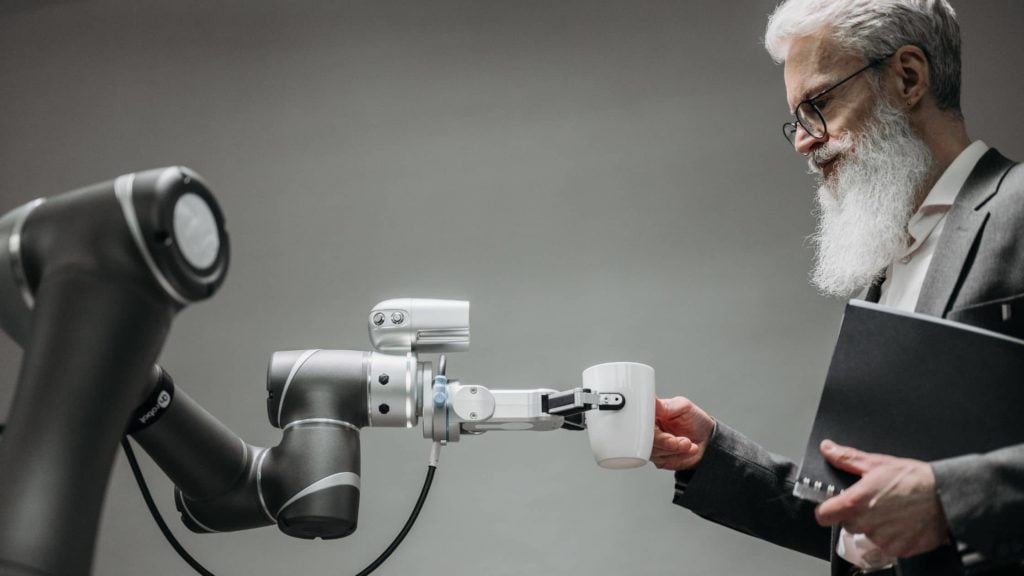The advancement of technology and the change of habits and customs have always forced humanity to leave behind old professions and trades that become obsolete. The same is happening today.
The era of the internet, robots and artificial intelligence are threatening to end some of the most popular professions today.
The trend of automation is slowly creeping into every industry. We are noticing labor-intensive manual jobs in the industries are being replaced by robots. This increases the profitability of industries at the cost of job losses.

If you are among those who doubt whether your job will be nonexistent in near future.
Read this article, we are listing some of the popular 6 jobs that will disappear by 2030.
6 Jobs That Will Disappear By 2030
1. Travel Agents

Until a few decades ago, people who wanted to travel went to a travel agency where a professional specialized in the subject offered them the best travel plans. They did not have to worry about anything.
The travel agent, according to your budget will buy you the tickets, the stay, and even the plans for your vacation day to day activities.
Well, now, with the advancement of technology emerged platforms like Skyscanner (which looks for the cheapest flights), Airbnb (which offers more local stays), and travel pages where the different plans and their costs are detailed.
Using these tools are technologies many people are choosing to build their own vacations without paying commissions to intermediaries.
2. Taxi Drivers

Although today it seems impossible for drivers to disappear, the truth is in the near future this profession could become obsolete.
Reasons are several, companies are developing autonomous vehicles, which are able to identify all the characteristics of their nearby environment using laser technology, radars, a global positioning system, and computerized vision, in order to be able to drive without any type of driver.
Several autonomous programs have been introduced by companies such as Google, Ford, Volvo, Renault, and BMW, but they have not yet managed to completely solve that lack of confidence in road safety and the insurance of these vehicles.
However, it seems a matter of time before they get ahead and the first autonomous cars hit the streets. We have already seen the first tests of autonomous cars in Tesla cars.
So it is not unreasonable to think that in the 2020s where we will see their real implementation.
3. Chauffeurs

Unlike taxi drivers, chauffeurs are professional drivers who drive for wealthy and high-rank people like company owners, rich people, high-rank government offices, etc.
They are accountable for their actions since they cater their services to high-rank people or officials. Similar to taxi drivers mentioned above, the jobs of chauffeurs are also at risk in the near future. Since autonomous vehicles don’t need a driver.
Autonomous technological advancements will sure have an impact on companies offering such professional transportation services.
A study by the University of Oxford estimates that there is an 89% probability that the profession of the chauffeur will be fully automated in the future.
4. Postman

The appearance of drones – as in the case of home delivery – and the internet phenomenon, together with the digitization of numerous administrative and legal processes, are some of the factors that will greatly reduce paper mail.
However, parcel services, express transport, and customer-centric logistics will grow like wildfire, especially in relation to e-commerce.
The tasks which one needs to do now at a post office, such as receiving letters and packages or examining mail, could be reduced by 26.2% in 2024.
5. Waiters

Although it looks like a scene out of the latest Star Wars movie, we are heading for a future where robots will serve us food in restaurants.
The automation potential in the coming years for the job of the waiter is 77%, according to a study by the ‘Centre for an Urban Future’.
You might have already seen robot waiters operational in many hotels in china. Today such sights may be a rare thing to see, in the foreseeable future robot waiter will be a usual sight in hotels and restaurants.
Orders may be taken through the tablet screen on the table, and they will be delivered by a robot.
6. Industry Workers

The industrial sector is one of those that have been most transformed by the rise of technology. Mainly by the incorporation of machines and robots that do the work of humans on assembly lines.
The trend of automated mass production has already begun in the industries, due to which millions of skilled laborers have already lost their jobs.
In this sense, approximately 400,000 industrial positions have been occupied by robots throughout Europe since 2000. This trend will multiply between now and 2030 with 2 million positions occupied by machines.